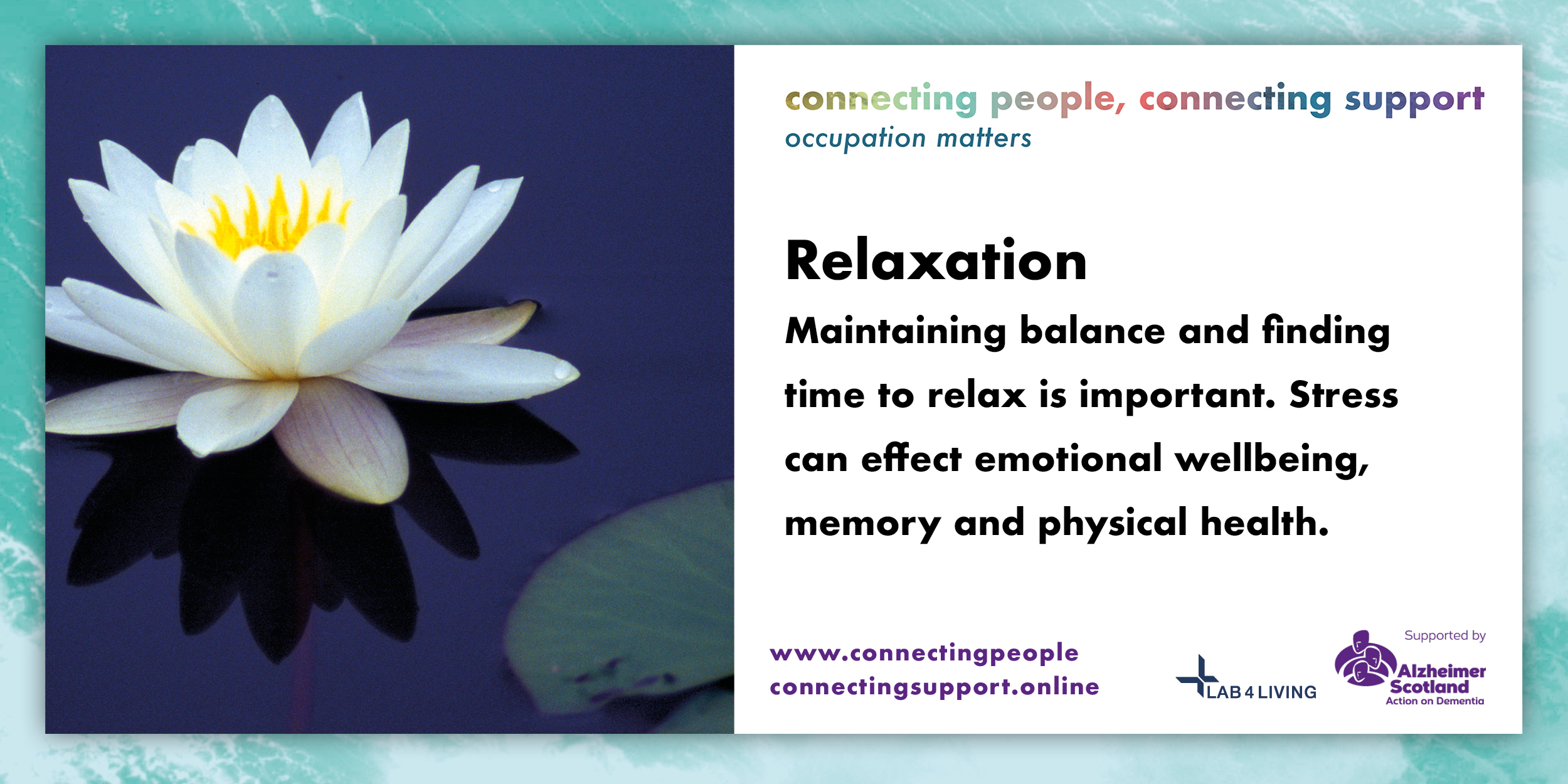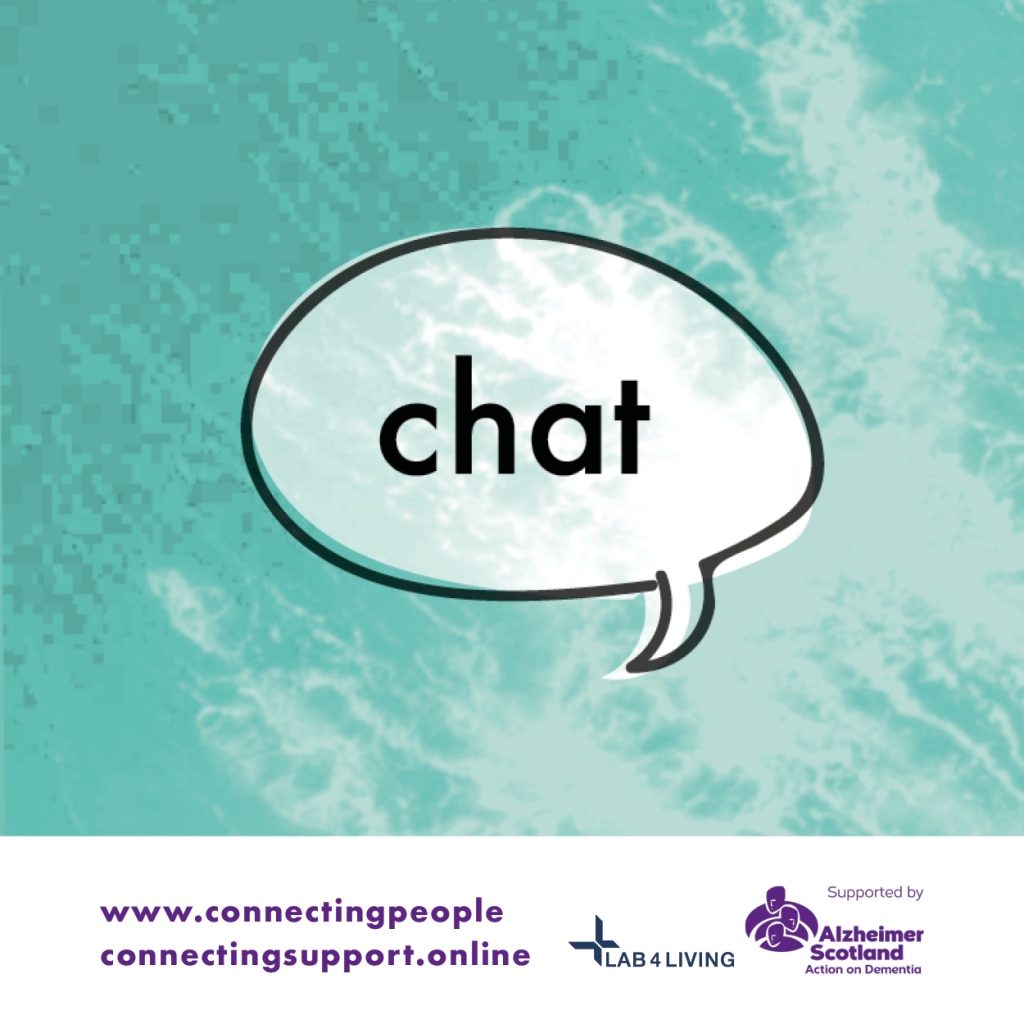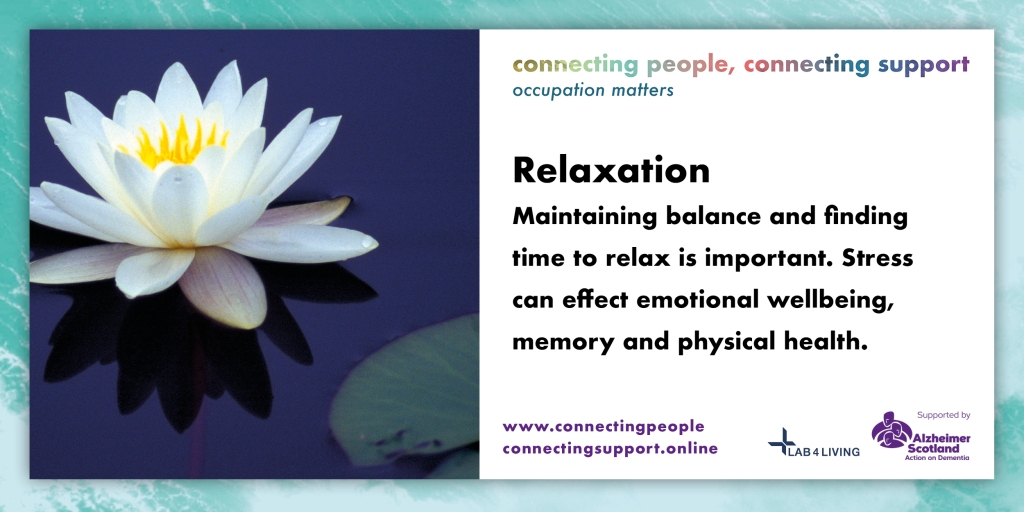[ad_1]
Connecting People, Connecting Support was designed to help you embed health promoting activities into your daily routine. Whether you are visiting this website because you have been told that you have mild-cognitive impairment, have been given a diagnosis of dementia, or want to keep well by taking steps to maintain good brain health, there is something here for everyone.
Connecting People Connecting Support on-line shares 32 topics full of information and resources supporting health promoting activities into a person’s daily routine using film, illustration and photography. The resources and activities have been tried, tested and recommended by people living with dementia and those who support them while also being informed by the developing evidence base on brain health, occupational therapy and dementia rehabilitation.
Allied health professionals have an important role in supporting brain health, by sharing our expertise and public health messages. Allied health professionals can support people to eat well, take part in physical exercise, offer ideas on how to improve sleep, support people to engage in mindfulness and support people to try something new.
In our interactive website at www.CPCS.online we have called our contribution to brain health “Lifestyle Matters”. Everything is connected. How we feel, what we think and our physical health are all linked and evidence shows that the activities and occupations we engage with on a day to day all impact on our health and wellbeing.
Many factors can affect our brain health and by making tiny adjustments to our lifestyle we can make a difference: maximising how we function and potentially preventing or delaying the development of some types of dementia. When you click on the lifestyle matter folder, you will find things to Chat about, Try, Play and with additional resources in More.
CHAT. We offer ideas to start the conversation about lifestyle including
- What do you do on a day-to-day basis to relax?
What activities do you find particularly restorative? (having a bath, going for a long walk, spending time with family) How often are you able to these? - What activities give you a sense of purpose?
- What motivates you to get out of bed on a morning?
- How much of a balance do you think you have between the things you have to do and the things you want to do?
- When did you last try something new? What helps or hinders trying new things?
- How do you connect with others?
TRY. Lifestyle matters and making tiny adjustments and embedding health promoting activities into routines can make a huge difference. This includes taking steps to eat and sleep well, taking time to connect with friends and family, challenging ourselves to learn new things and building in some physical activity throughout the day. Examples and ways of doing this can be found across this website and this theme offers a short introduction that will hopefully help you to begin to think about small changes you can make to keep well by taking steps to maintain good brain health. Try this lifestyle challenge. See how many elements you can achieve in the next few weeks?
PLAY. As more and more connections are made between brain health and dementia we are seeing an increasing number of online tools and quizzes to help check out your wellbeing. You will find some here
MORE. In this section you can read about ways to keep your brain healthy including the work of colleagues at Brain Health Scotland. To further your support your brain health, why not try the brain health quiz https://brainhealthplan.brainhealth.scot/start
Related topics:
Have a look at our other topics that support good brain health.
Many of the activities we take part in are shared with others. It is through friendships that we give and receive support, share these meaningful activities and develop valued roles. Activities in this topic help you to identify some of the friendships and broader support mechanisms you currently draw on and explore ways to maintain existing friendships as well as develop new ones.
There is a close relationship between physical health and emotional and brain health. Building in some form of physical activity in our everyday routines can support wellbeing, offering a good source of exercise and a way to channel energy in a positive way.
Maintaining some kind of balance and finding time to relax is important. Stress not only impacts on emotional wellbeing it can also affect memory and physical health. These activities promote relaxation.
A balanced healthy diet is important to keeping mentally and physically well. In this topic we think about the importance of establishing mealtime routines and ways of making dining into a meaningful activity.
A good night’s sleep is important for physical and emotional wellbeing. Over a lifetime our sleep patterns and the amount of sleep we need will change. However dementia can also significantly impact on these patterns. These activities invite you to think about sleep and offer some suggestions of how to get a good night’s rest.
[ad_2]
Source_link



